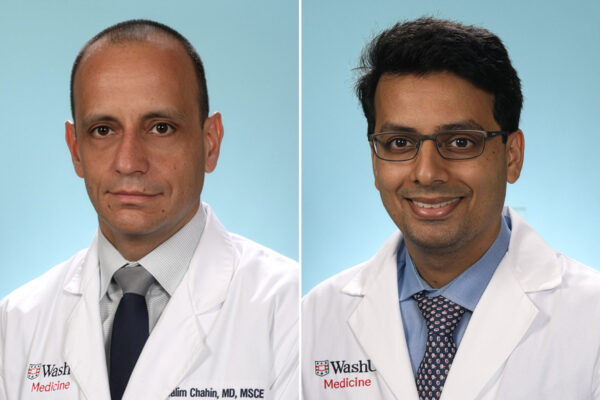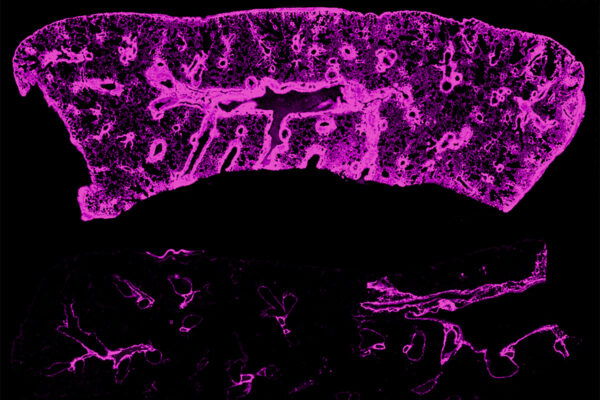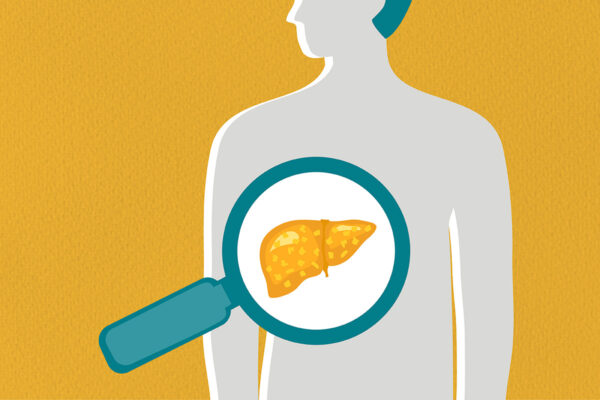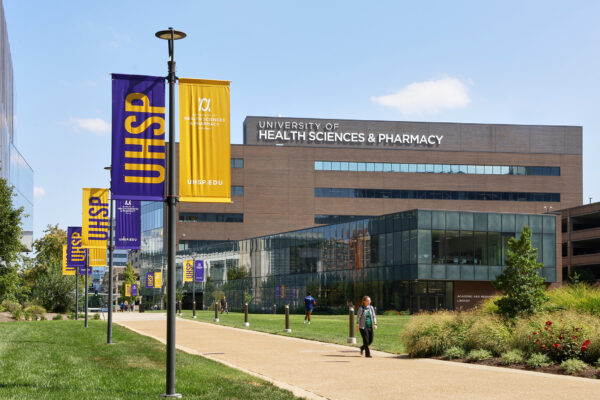Chahin, Rohatgi named Loeb Teaching Fellows
The 2026-28 Carol B. and Jerome T. Loeb Teaching Fellows at WashU Medicine have been named. They are Salim Chahin, MD (left), an associate professor of neurology, and Ram K. Rohatgi, MD, an assistant professor of pediatrics and of radiology.
New WashU Medicine program to train data specialists
The master’s program in biomedical data science and artificial intelligence is one of few such programs in the U.S. It offers a flexible curriculum, part-time enrollment and evening classes to accommodate working students.
Surprising culprit leads to chronic rejection of transplanted lungs, hearts
A new study from researchers at WashU Medicine shows that chronic organ rejection may be triggered by the disruption of lymphatic vessels from the donor organ rather than an attack by the patient’s immune system.
A risk factor for liver disease: your parent’s body weight
Researchers at WashU Medicine have found a strong correlation between obesity in one or both parents during pregnancy and their child’s risk of developing a common liver disorder.
WashU to establish pharmacy school, absorb PharmD program from UHSP
Washington University in St. Louis and University of Health Sciences and Pharmacy announced they have entered into an agreement whereby WashU will assume control of UHSP. UHSP’s central program, the Doctor of Pharmacy, will become WashU’s 10th academic school, to be known as WashU St. Louis College of Pharmacy.
Willers to lead Division of Academic Specialists in Obstetrics & Gynecology
Denise M.S. Willers, MD, a clinician renowned for patient-centered care and academic excellence, has been named the new director of the WashU Medicine Division of Academic Specialists in Obstetrics & Gynecology.
$6.4 million supports studies of cardiac muscle function in heart failure
Michael J. Greenberg, at WashU Medicine, has received two grants from the National Institutes of Health (NIH) to investigate the complex roles of troponin — a critical protein in the heart — in various forms of heart failure.
Payne elected president of medical informatics organization
Philip Payne, vice chancellor for biomedical informatics and data science at WashU Medicine and chief health AI officer for BJC Health and WashU Medicine, will lead the American Medical Informatics Association.
Doug Frantz
As WashU’s vice chancellor for innovation and commercialization, Doug Frantz helps speed scientific discoveries into real-world therapies and devices. He works to develop strategic partnerships with industry and enhance WashU’s commercialization efforts.
Gulur named head of anesthesiology
Padma Gulur, MD, a physician-scientist and nationally recognized leader in pain management, has been named the head of the Department of Anesthesiology and the inaugural Alex S. Evers MD Distinguished Professor in Anesthesiology at WashU Medicine. Her appointment begins Aug. 1.
Older Stories









